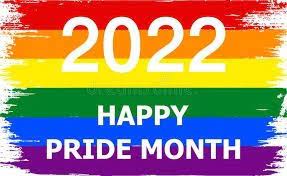Every June, the nation celebrates PRIDE Month and healthcare organizations can use the time to support and celebrate their LGBTQIA+ employees and patients. Whether you’re an LGBTQIA+ nurse, an ally, or someone who wants to learn more ways to offer support, this month encourages education, community, and celebration.
Anthony Pho, PhD, MPH, ANP-C, is a Propel postdoctoral scholar for The PRIDE Study at the Stanford University School of Medicine, and says nurses have the power to ask their organizations to be a welcoming and inclusive workplace. In doing so, nurses can be their authentic selves at work and patients will feel their health concerns are recognized, accepted, and heard.
Pho, who is also a board member for GLMA: Health Professionals Advancing LGBTQ Equality, says that anyone interested in how an organizations supports the LGBTQIA+ community simply has to run a quick internet search and see what comes up. In that space, a lack of information speaks volumes, so organizations want to make sure they foster an environment that’s inclusive in words and actions.
Luckily, the collaboration and organization that helps advance important initiatives and bring the community together is a specialty of many nurses. “Nurses are all about committees and organizing,” says Pho, laughing. “Whether that’s the next delicious potluck or recognizing service excellence, it’s built into the nursing culture to have a committee for something.” While nurses connect with each other this way, it also creates a powerful group. “It’s one way for nurses to engage with the larger hospital system,” Pho says.
Nurses can join committees for diversity, equity, and inclusion (many organizations also add justice to that list), to learn about and work toward issues impacting many groups and including LGBTQIA+ nurses. “That’s one way hospitals can advocate for and support LGBTQIA+ nurses and patients from an equity point of view,” says Pho. “And making sure LGBTQIA+ and other groups are mentioned from an equity point of view is a first step.”
Organizations that have advocates who publically endorse and advocate for LGBTQIA+ issues and concerns are essential, says Pho. “The public part of that support is really important,” he says. “It’s important that the leadership all the way to the top provides that support.” Ideally, that means employees are able to show public support for LGBTQIA+ issues and therefore, colleagues and patients, and the top leadership of the organization has done the same–preferably through a medium like a video.
“When you see the dean of an institution or the leaders at the top of an institution making a public statement, that’s very powerful,” says Pho. And a visible statement is something that nurses can use to refer back to when they want to advocate for LGBTQIA+ issues. PRIDE Month is a great springboard for that statement.
Nurses may also look into the Healthcare Equality Index (HEI), which is “the national LGBTQ+ benchmarking tool that evaluates healthcare facilities’ policies and practices related to the equity and inclusion of their LGBTQ+ patients, visitors and employees.” The HEI, says Pho, is the teeth behind any kind of health equality program as it offers evidence and evaluation on how organizations can become leaders in many areas.
And when organizations bring folks together for advocacy work, a mindful approach is needed. “It’s important to tap someone interested in health equity and then invite others who are representative of your organization,” says Pho. “That’s the key to amplifying those voices.” He notes that relying on underrepresented employees and making them responsible for DEI initiatives is detrimental as it is not only on their shoulders–it is an organization-wide responsibility and interest.
Nurses can also join organizations such as GLMA which will hold a GLMA Nursing Summit 2022 and has resources and connections in the GLMA Nursing Section.
Support and action are the key to helping promote issues throughout the year, not just during PRIDE Month. “If you want to change the universe,” says Pho, “you have to show up to the table.”
- WOC Nurses Week Highlights Specialty - April 16, 2024
- Honoring Radiology Nurses Day on April 12 - April 12, 2024
- Travel Offers New Career Possibilities - April 8, 2024



